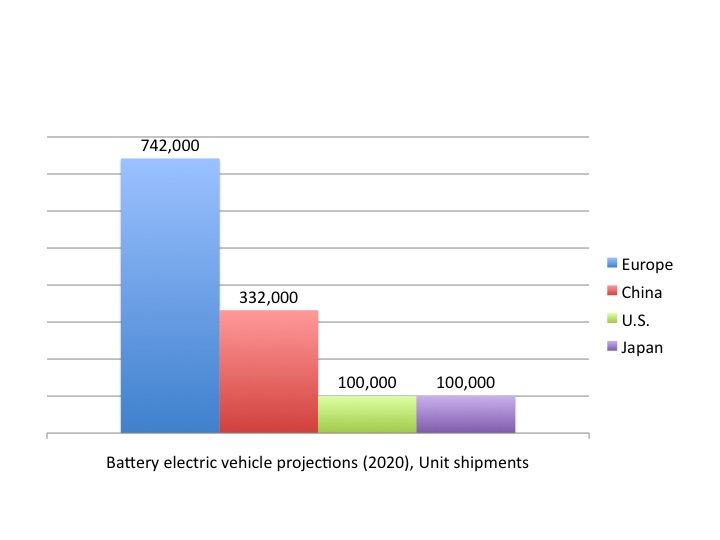New survey makes me wonder: Who's buying electric and hybrid cars, anyway?

When you think about surveys touting the benefits of cars, or lack thereof, the researcher that probably jumps to your mind first is the venerable J.D. Power and Associates. So it was with great interest that I read an item about the firm's new report about hybrid electric and battery electric vehicles.
The J.D. Power take on this sector? By 2020, only 7.3 percent of the estimated 71 million vehicles that will be sold that year (worldwide) will fall into the category. That's right, only 5.2 million units. In case you're wondering, right now, approximately 2.2 percent of the approximately 44.7 million cars sold this year will fall into the hybrid electric or battery electric category.
Here's the prognosis from John Humphrey, senior vice president of automotive operations at J.D. Power and Associates:
"Based on our research of consumer attitudes toward these technologies--and barring significant changes to public policy, including tax incentives and higher fuel economy standards--we don't anticipate a mass migration to green vehicles in the coming decade."
Huh, over the next 10 years that's all the progress we can expect?
Apparently, these are the reasons consumers are stalling on electric (nothing is really a surprise):
- Dislike of their design
- Worries about reliabilty
- Dissatisfaction with performance and power
- Concerns over driving range
- Concerns over how long it takes to recharge
According to J.D. Power, there just isn't enough going on in the world to motivate consumers to make the switch. J.D. Power says that widespread adoption won't happen unless the following occurs:
- Gas and petroleum prices rise substantially
- There is a big green tech breakthrough that reduces the cost of the alternative
- The government initiates a policy to help with these services
- China adopts some sort of nationwide policy to promote alternative-energy vehicles
So, in other words, all of you worry about how your electric grid will be affected when all your neighbors go electric can chill out. Realistically, how often do people buy cars? I'm probably out of the norm, because I buy rather than lease, but I've had exactly three cars in my life, and I'm not as young as I used to be.
In my opinion, the place that the carmakers really need to focus is on the financial implications of buying or leasing an electric vehicle. Helping consumers understand the true costs over the life of an electric car versus a convention one is an equation that more automotive companies need to address -- and not with complicated math equations but with language that helps break it down into a monthly conversation. Because, realistically, consumers think of cars in terms of monthly payments.
More from J.D. Power analyst Humphrey:
"Many consumers say they are concerned about the environment, but when they find out how much a green vehicle is going to cost, their altrustic inclination declines considerably. For example, among consumers in the U.S. who initially say they are interested in buying a hybrid vehicle, the number declines by some 50 percent when they learn of the extra $5,000, on average, it would cost to acquire the vehicle."
My question is, does it really cost that much more over the lifetime? We don't really know and until we do, more people won't start buying.
